Africa, your time is now featuring Gbenga Oyebode and Hilary Pennington
Transcript
[Africa, your time is now. Gbenga Oyebode, co-founder and chairman, Aluko and Oyebode. Trustee, Ford Foundation. A tall Black African man in a black suit and a blue tie. Hilary Pennington, executive vice president, Global Programs, Ford Foundation. A white woman with short blonde hair, wearing a white dress.]
ANNOUNCER: Please welcome, Gbenga Oyebode and Hilary Pennington.
[applause]
HILARY PENNINGTON: Hello.
GBENGA OYEBODE: Hi, Hilary.
HILARY PENNINGTON: If there is a place where injustice and justice come together in very complex ways, it is the continent where you and I were both born—the continent of Africa.
GBENGA OYEBODE: Yes.
HILARY PENNINGTON: A place that attracts significant philanthropic attention. With more than 1.2 billion people, um, from 3,000 different ethnic groups, speaking more than 2,000 different languages, located in 54 distinct countries. Africa is not a country.
GBENGA OYEBODE: No, it’s not. [laughter]
HILARY PENNINGTON: It is a diverse and a complex continent. We’re not just talking about one place, when we talk about philanthropy in Africa. And it is also a place of incredible growth and change, where there is a lot of innovation that is leapfrogging old systems. And arguably the same may be true for philanthropy, as well. So, I want to start out with, with you, with your own journey, how you came into philanthropy, and how you think about it. Because you are one of the most distinguished leaders in this emerging sector in the continent.
GBENGA OYEBODE: Thank you, Hilary. Uh, one other piece of statistics that I will add to that, which actually complicates it further, is that in 25 years, there will be two-and-a-half billion people on the continent.
HILARY PENNINGTON: …two and a half billion.
GBENGA OYEBODE: And, so, imagine that a country like Nigeria, that has 200 million people today, will be 400 million people. The city of Lagos, where I live, is 20 million people today. It will be the third biggest city in the world, and there will be 40 million people—further complicates an already dire situation.
HILARY PENNINGTON: And young. A very young continent.
GBENGA OYEBODE: Extremely young. Over 60 percent of the population is under 35. So, that’s what we’re dealing with. How did I come to this? I think, um, when you live in a continent like, like Africa, where there’s significant gaps that you see in almost everything that you look at, whether it’s in education, or it’s in healthcare, um, you know, just in the infrastructure, you really have to stop and think. And especially where you’ve been blessed by fortune. You’ve been fortunate in your ability to, um, to drive change. And so, for me, it was always about what else do we need to do? How do we give back? How do we change things? How do we make sure that the continent doesn’t remain a basket case? How do we push the envelope such that for those of us that see an opportunity to give back, that we continue to talk about it, advocate for it, be ambassadors for it, but more importantly, get our hands dirty.
HILARY PENNINGTON: What do you see, um, from your—among your fellow philanthropists? As they come into philanthropy, how are they getting started?
GBENGA OYEBODE: We’re at that stage where the—the families are starting to think of strategic-type giving. Um, we’re starting to, um, put foundations in place. One of the things that I think interests me the most is how the corporates on the continent, uh, already are setting up foundations. So, as you go across the continent, most of the major financial institutions, uh, the major Telcos, already have foundations in place in, uh, all the different countries where they operate. The perspective being that they would like to change things in those jurisdictions. I’m seeing a lot of, um, philanthropists that are oligarchs, eh? Who essentially understand that they cannot survive if they do not change things and that they cannot rely on governments. First, because of declining revenues, and and most of the governments are commodities driven. Commodities prices collapse, uh, but, the significantly wealthy in these environments needs understand that they need to give back and such that we can force change.
HILARY PENNINGTON: Right. We were talking a little bit in the back about impact investing and the real, um, interest and enthusiasm about it on the continent. Can you talk a little bit about how you see that evolving?
GBENGA OYEBODE: What I have started to see about impact investing is that, um, you don’t need to really look at the continent from the perspective of just, um, we’re giving. You could actually at the continent from the perspective of, of an economic return. However, inherent in that economic return is in investment, for instance, in education. There’s a great university, the African Leadership University, that is a for-profit institution. Except that it is a change in the way that we run education on the continent. That in itself is a model that I think we should all look at. So, so it’s not really necessarily about philanthropy, as in giving, but all—it’s also about investing, uh, with a social impact but also with an economic return.
HILARY PENNINGTON: Well, I think that’s hugely important and a very different approach than development aid. So I’m—I’m curious from where you sit, what do you wish international donors, whether it’s development aid or philanthropists, knew and did differently, as they work on the continent?
GBENGA OYEBODE: Over the last, uh, maybe 20 years, again, we started seeing a change in the way that international, uh, NGOs and philanthropists have focused on the continent. Hitherto, it was always an investment or—or a collaboration with governments, and we never really saw the change that—that was promised. Today, we’re starting to see significant collaboration with local civil society organizations, local NGOs, such that we’re starting to identify not just the symptoms, but let’s deal with the disease. So, if you said to me, today, what is—what is the biggest change and what are they change agents that I’m looking at? Education and leadership. Education, such that our people will vote—will not vote ethnicity and religion.
HILARY PENNINGTON: Yeah.
GBENGA OYEBODE: Education, such that they know the difference. Leadership, such that they will make the right decision in their leaders. That, for me, is the kind of, uh, change, that I would like to see across the continent.
HILARY PENNINGTON: I’m curious, what do you think about the relative need for, or benefits of, institutional philanthropies, like—like a Ford Foundation, or a Rockefeller Foundation? My impression is that most people who are coming into philanthropy on the continent are not really setting up independent foundations. Like Henry Ford had the—the vision to say, “I want to create an independent institution, even independent of my family, that’s going to live in perpetuity to keep solving problems.” Do you think that’s a good idea in the context of Africa?
GBENGA OYEBODE: I think it is. Um, as you know, I sit on the board of the Africa Philanthropy Forum, and, and the APF was supported by Ford Foundation. One of the things that we’re trying to do with the APF is really to get, um, so you’re, you’re—across the continent, one of the strong cultural things that we see is how giving is part of our culture. Except that it’s so unstructured, it’s not strategic. And so, what, what are we doing at the APF? Through our regional conferences and seminars across the continent, we’re trying to say to people, “Let’s sit back and do this in a very strategic way. Let’s determine what’s the sector that we want to give to. If you don’t have a foundation, let’s, let’s, uh, put a—we have a tool kit that we’ve circulated. Let’s—let’s focus attention on how do we do this in a way that you can collaborate across the continent, where you can give strategically, where you can give to particular needs in society.” And, so, that in itself is a change that I’m seeing in Nigeria, in South Africa, in—in Kenya and in northern Africa. And I think, increasingly, that will be the model that you see. Obviously, it’s critical that, uh, um, you know, one of the things that I think is—is important is that collaboration.
HILARY PENNINGTON: So, I want to thank you. I do think from where we sit, as well, that there is an opportunity going back to the importance of partnership and not going it alone, and only being about your brand, for us to be learning from what’s happening on the continent and from you. So, thank you so much.
GBENGA OYEBODE: Thank you very much. [applause]
[New gospel of wealth. What does #GenerosityToJustice look like to you? Ford Foundation dot org forward slash new gospel.]
Accessibility Statement
- All videos produced by the Ford Foundation since 2020 include captions and downloadable transcripts. For videos where visuals require additional understanding, we offer audio-described versions.
- We are continuing to make videos produced prior to 2020 accessible.
- Videos from third-party sources (those not produced by the Ford Foundation) may not have captions, accessible transcripts, or audio descriptions.
- To improve accessibility beyond our site, we’ve created a free video accessibility WordPress plug-in.
Gbenga Oyebode, co-founder and chairman of the Nigerian law firm Aluko & Oyebode and Ford Foundation trustee, on African philanthropy and transforming the culture of giving on the African continent. Moderated by Ford Foundation executive vice president for program, Hilary Pennington.
“Giving is part of our culture…Let’s focus attention on how we do this in a way that you can collaborate across the continent, where you can give strategically, where you can give to particular needs in society. ”
– Gbenga Oyebode
Learn more about New Gospel of Wealth
Other videos in this series
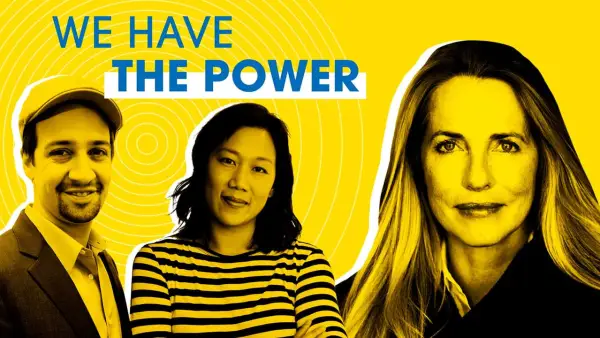
Let’s rethink giving
How can we reimagine philanthropy so that we create a future where there is justice and dignity for all? What are the root causes of the issues and how do we encourage the participation of many and not just a few?
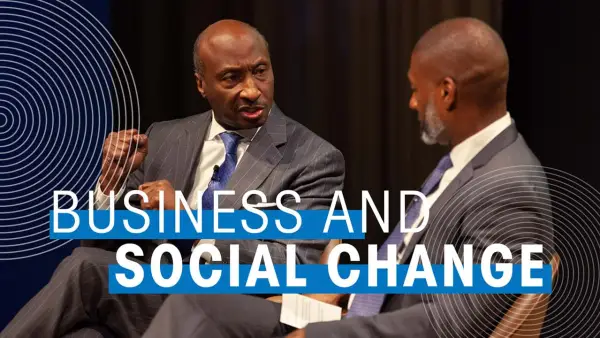
The business of justice featuring Kenneth Frazier and Charles Blow
Kenneth Frazier, CEO of Merck and Co, believes one of the greatest injustices in our society is the health disparities experienced by women of color. A zip code is more likely to determine health outcomes than genetic code. Frazier uses philanthropy to address mortality rate and wants to see more medical personnel listen to their women patients and patients of color.
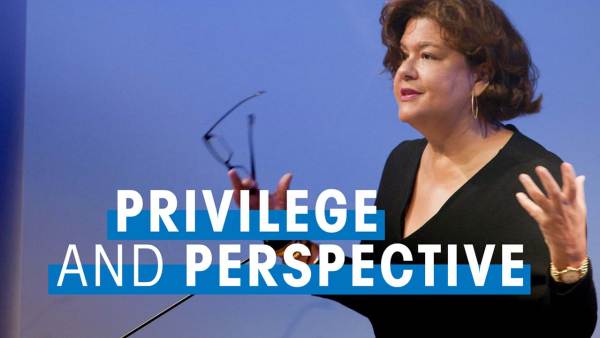
The privilege of perspective featuring Elizabeth Alexander
Elizabeth Alexander, president of the Andrew W. Mellon Foundation, on art, activism, and acknowledging adversity.
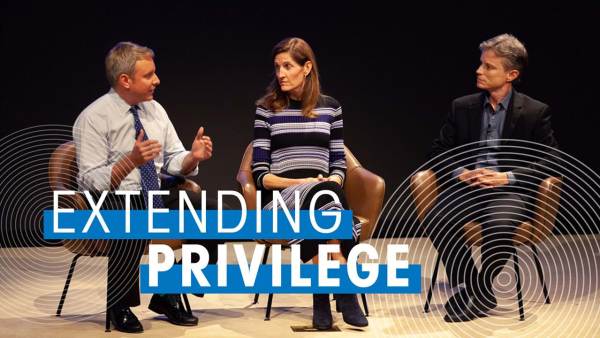
Extending privilege featuring Valerie Rockefeller and Henry Ford III
Henry Ford III, trustee of the Ford Foundation, and Valerie Rockefeller, chair of the Rockefeller Brothers Fund, discuss transforming philanthropy for the 21st century. The families have seen the value of impact investing and believe in partnerships to increase the difference that can be made.
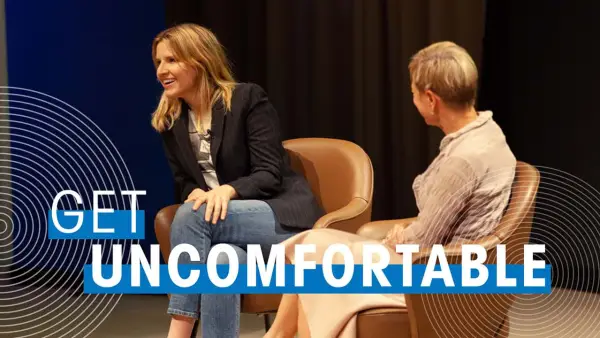
Getting proximate featuring Tara Westover and Hilary Pennington
Tara Westover, author of “Educated,” sees a disconnect between the rural and urban parts of the United States. She believes philanthropists need to be more proximate to the issues they care about, and that spending time with people who aren’t like you is key to disrupting inequality.
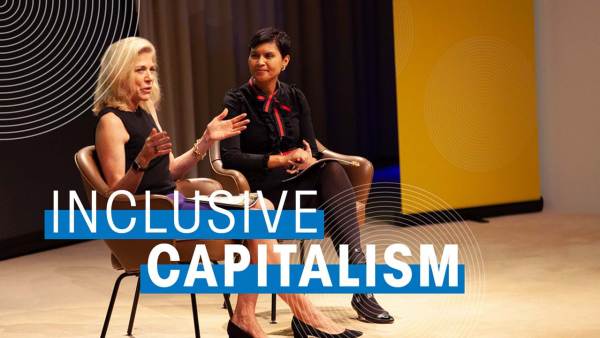
Can capitalism ever really be inclusive? featuring Lynn Forester de Rothschild and Stephanie Mehta
The top 1 percent of the United States controls 42 percent of the national wealth. Lynn Forester de Rothschild, founder of the Center for Inclusive Capitalism, explains that reimagining the economy and making it a sustainable, inclusive system that leads to strong economic growth requires reform.
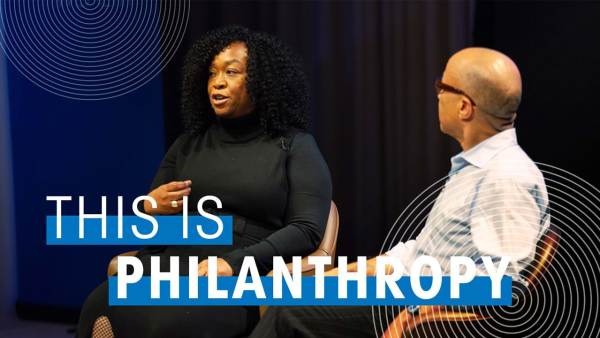
This is what a philanthropist looks like featuring Shonda Rhimes and Darren Walker
Writer and producer Shonda Rhimes has seen the power storytelling has to make change through her work, which centers marginalized people and issues. Rhimes believes philanthropy sets an example others can follow, and says supporting organizations that are already on the ground doing the work is key.
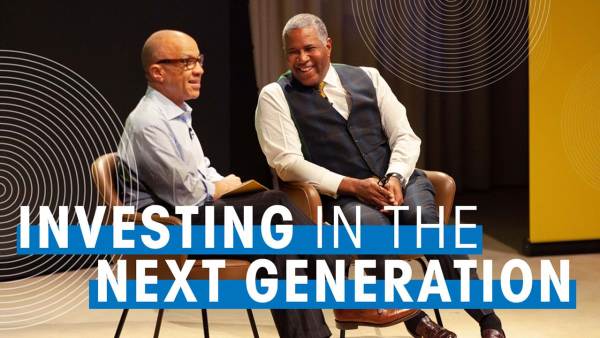
Catalyzing the potential of our time featuring Robert Smith and Darren Walker
Through philanthropy, Robert Smith, CEO of Vista Equity Partners, has alleviated the burden of student debt for a graduating class. He says private philanthropy can help address public policy challenges, such as student loan debt, and is a disruptive opportunity that liberates people to contribute to society in positive ways.
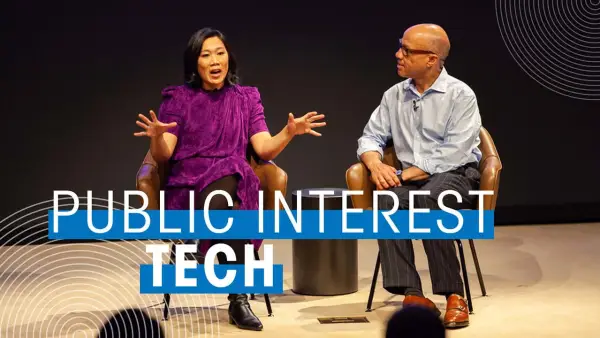
Tech funders changing philanthropy featuring Priscilla Chan & Darren Walker
The top 1 percent of the United States controls 42 percent of the national wealth. Lynn Forester de Rothschild, founder of the Center for Inclusive Capitalism, explains that reimagining the economy and making it a sustainable, inclusive system that leads to strong economic growth requires reform.
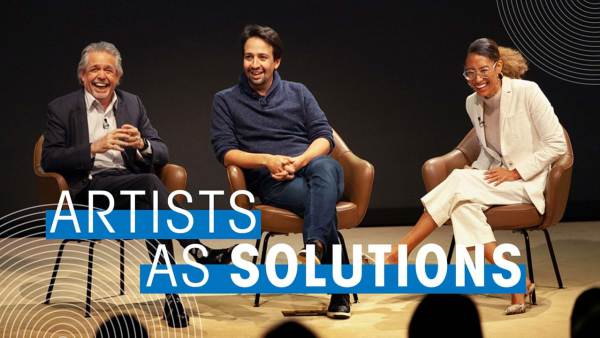
Why artists shouldn’t stay in their lane featuring Lin-Manuel Miranda, Luis Miranda Jr. and Elaine Welteroth
Composer and actor Lin-Manuel Miranda believes all art is political. He and his father, Luis A. Miranda Jr. of the MirRam Group, see the value philanthropy has to empower communities that may have been neglected, and allow them to share their stories through the arts, like Puerto Rico did after Hurricane Maria.
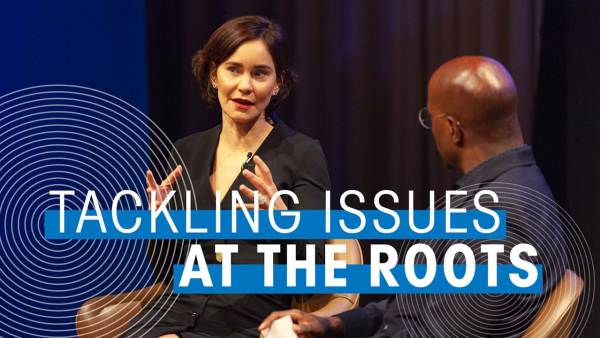
Good philanthropy needs government featuring Laura Arnold and Van Jones
Laura Arnold, co-chair of Arnold Ventures, believes policy change is the lever that will lead to sustainable change. She says we need to attack the systems that are creating the injustices we see, like criminal justice. Philanthropy can create better alternatives that governments can adopt.
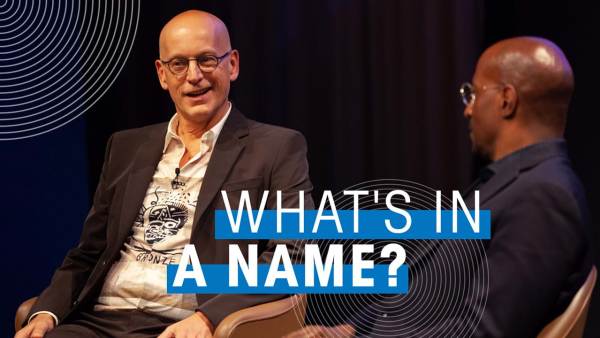
The power of a name featuring Jon Stryker and Van Jones
As a philanthropist, Jon Stryker, president of the Arcus Foundation, believes the act of naming gives power and influence to the work that is supported through his gifts. His philanthropy supports those on the frontlines of justice, providing resources and power to those who need it most.
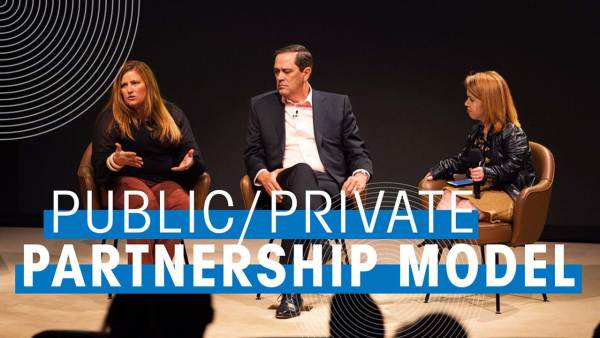
Public-private partnership: A new model for lasting impact featuring Jennifer Loving and Chuck Robbins
Jennifer Loving, CEO of Destination: Home, says a public-private partnership, like the one between her nonprofit and Cisco, headed by Chuck Robbins, can help create a model for the future of philanthropy, and tools like social bonds can help address some of the biggest crises of our time.
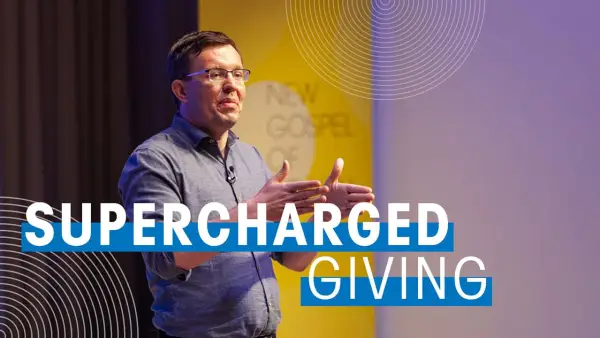
The new power of philanthropy featuring Henry Timms
CEO of Lincoln Center Henry Timms asks how philanthropy can supercharge civic engagement. Timms, who started Giving Tuesday, says trust-based philanthropy needs to shift from generosity to justice, driving more participation from more people, and encouraging meaningful ways to participate and collaborate.
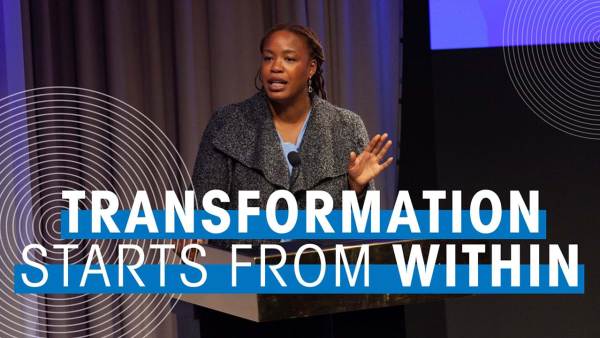
Transforming organizations from the inside featuring Heather McGhee
Heather McGhee, distinguished senior fellow at Demos, shares her experience of working to make the Demos think tank more diverse and led by people of color. Institutional racism, however slight, drives inequality, she says, so transformation needs to be a must-have and not a nice-to-have.
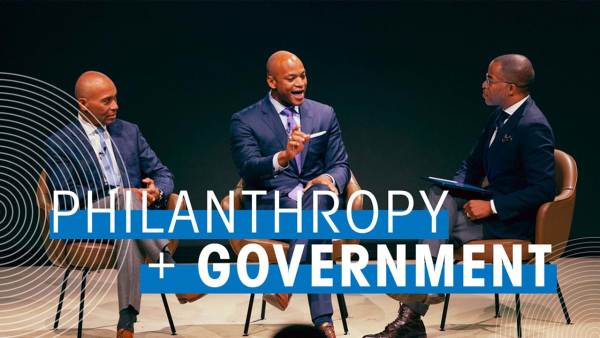
Why good government needs philanthropy featuring Deval Patrick and Wes Moore with Jonathan Capehart
Wes Moore, CEO of Robin Hood, and Deval Patrick, managing director of Bain Capital, see philanthropy working hand-in-hand with government in the fight for equality. Philanthropy can often provide the initial capital needed while government can take over and scale the solution.
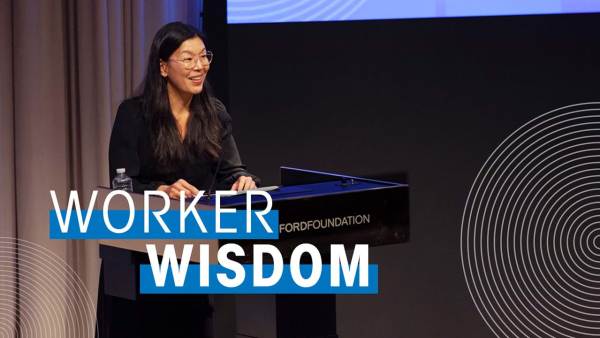
Bringing hidden labor to light featuring Ai-Jen Poo
Ai-jen Poo, executive director of the National Domestic Workers Alliance, says the sector of caregivers and domestic workers continues to grow. Building a future of work that works for all is centered on justice-based philanthropy and not a generosity model.
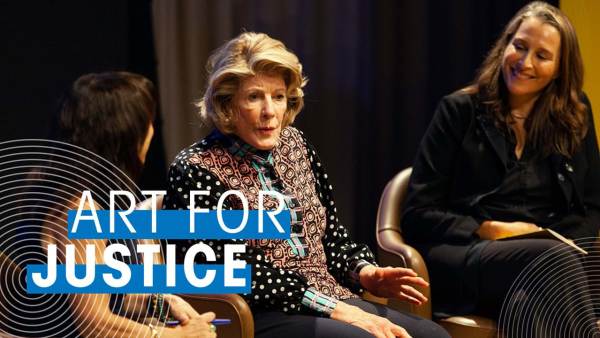
Art for Justice featuring Agnes Gund and Catherine Gund with Maria Hinojosa
The Art for Justice fund was created to help end mass incarceration. Founder Agnes Gund says philanthropy is about addressing issues like this. Catherine Gund believes art has an important part to play in the fight for racial justice and can help change the policies that led to mass incarceration.
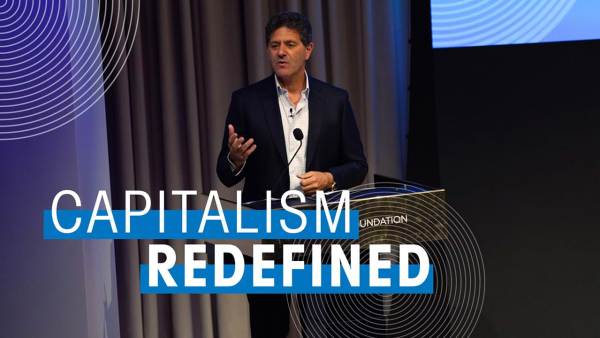
Capitalism redefined featuring Nick Hanauer
Entrepreneur Nick Hanauer asks us to reimagine the economy. He believes we need to change our beliefs about the economy to create a more just, more equitable society for all. By choosing better economic beliefs, we can change society for good.
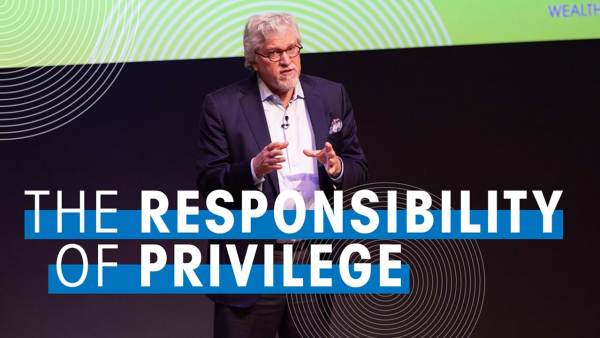
On using power and privilege for change featuring Jeff Raikes
Jeff Raikes, co-founder of the Raikes Foundation, says dismantling racism requires philanthropy to ditch its colorblind approach. People in power need to acknowledge that privilege is invisible to those who possess it. Privilege and power need to be transformed into a force for changing our society for the better.